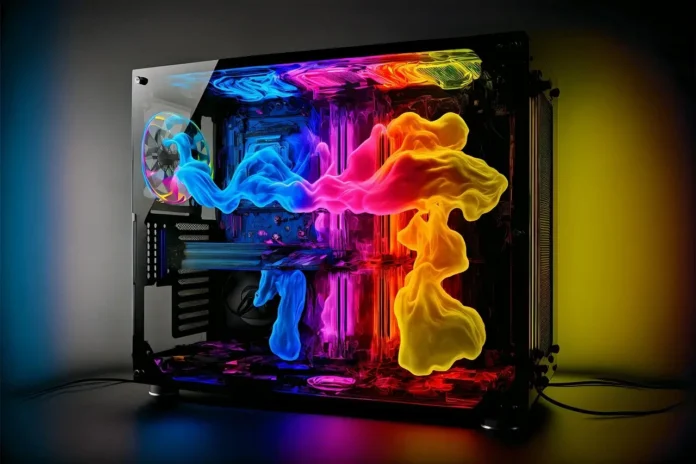Cooling Systems: Keeping Your Computer Chill ❄️
If your computer were a high-performance car, its cooling system would be like its radiator—essential for peak performance. Whether you’re gaming, editing videos, or just browsing the web, managing heat is crucial for your computer’s longevity and efficiency. Let’s dive into the fascinating world of cooling systems and explore how they work to keep your PC cool and quiet. 🖥️
Why Cooling Systems Are Important
Computers generate heat while running, especially the CPU and GPU, which perform heavy computations. Without a proper cooling system, this heat can lead to:
- Reduced performance 🛑
- Hardware damage 🔧
- Shortened lifespan of components
By managing heat effectively, cooling systems ensure your PC operates at optimal performance levels.
Types of Cooling Systems
1. Case Fans 🌬️
Case fans are the most common cooling method in computers. They create airflow inside your computer case, moving hot air out and bringing cool air in.
- Placement: Typically installed at the front, back, or top of the case.
- Advantages: Affordable, easy to install, and effective for general use.
- Pro Tip: Use multiple case fans for better airflow. Make sure to configure them properly to avoid hot air recirculation.
2. Liquid Cooling Systems 💧
For enthusiasts and high-performance setups, liquid cooling systems offer unparalleled efficiency. They use a combination of radiators, pumps, and liquid to transfer heat away from components.
- Radiators and Pumps: These work together to dissipate heat. Radiators release heat into the air, while pumps circulate the coolant.
- Advantages: Quieter and more efficient than air cooling, especially for overclocked CPUs and GPUs.
- Downsides: More expensive and complex to install than case fans.
3. Thermal Paste 🧴
You might not think much about thermal paste, but it plays a vital role in heat management. Applied between the CPU and its heatsink, it ensures maximum thermal conductivity.
- Purpose: Fills microscopic gaps between the CPU and the cooler, enabling better heat transfer.
- Maintenance: Replace the thermal paste every couple of years to maintain effectiveness.
How to Choose the Right Cooling System
- Understand Your Needs:
- Casual users can stick to case fans.
- Gamers or content creators might need liquid cooling.
- Budget Considerations:
- Case fans are budget-friendly.
- Liquid cooling is an investment but offers better results.
- Space Inside Your Case:
- Make sure your case has room for radiators if you’re considering liquid cooling.
- Noise Levels:
- Liquid cooling systems are quieter, making them ideal for silent builds.
Installing a Cooling System
- Case Fans: Simply attach them to designated spots in your case, connect to the motherboard, and configure their speed in the BIOS.
- Liquid Cooling Systems: A bit more complex—install the radiator, connect the tubes, and secure the pump to the CPU. Follow manufacturer instructions carefully!
- Thermal Paste: Apply a small pea-sized amount on the CPU before attaching the cooler.
Cooling Systems for Gaming PCs 🎮
Gaming PCs demand superior cooling because of the intense heat generated by high-performance GPUs and overclocked CPUs. A liquid cooling system is often the best choice for such setups.
FAQs About Cooling Systems
1. Do I really need a liquid cooling system?
If you’re a casual user, no. But for gamers and professionals running demanding applications, liquid cooling ensures better performance and longevity.
2. How often should I replace thermal paste?
Every 2–3 years or when temperatures start to rise unexpectedly.
3. Can I install case fans and liquid cooling together?
Absolutely! Many setups combine both for optimal airflow and heat dissipation.
4. Are liquid cooling systems safe?
Yes, if installed properly. Most modern systems are designed to be leak-proof.
Final Thoughts
A reliable cooling system is like insurance for your computer. Whether it’s case fans, liquid cooling systems, or a fresh application of thermal paste, keeping your system cool ensures that it performs efficiently and lasts longer.
So, what’s your cooling solution? Are you team case fans or team liquid cooling? Let’s keep the conversation flowing! 💨💧

